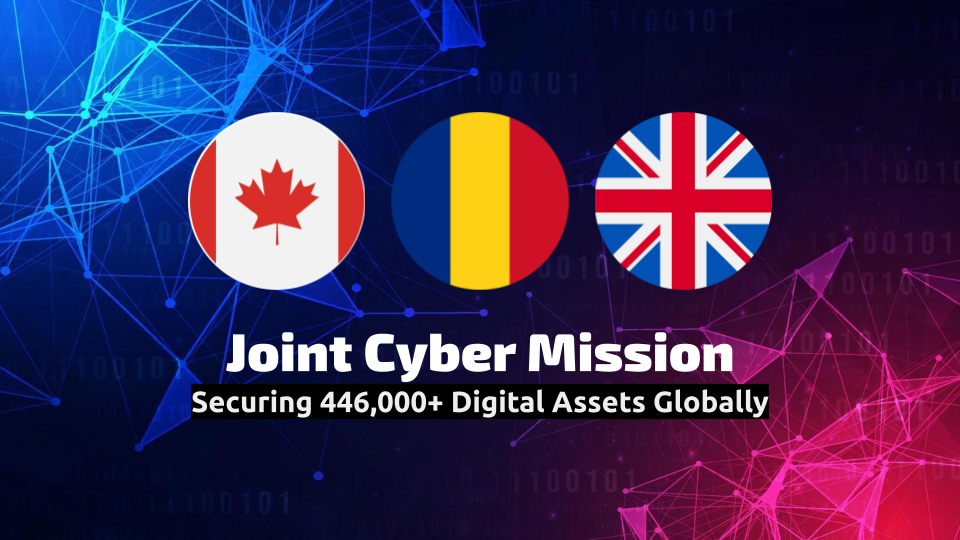Mission Cyber Sentinel was completed

Mission Cyber Sentinel is a global cybersecurity initiative focused on identifying and responsibly disclosing vulnerabilities in open-source software to protect over 446,000 online assets, including websites, servers, and IoT systems worldwide.
Read more about MCS on Delta Obscura's website:
https://delta.cyberm.ca/mission/mission-cyber-sentinel/
We closed out Mission Cyber Sentinel in just three months, yet, lacking published CVEs to benchmark our work, we had no official yardstick for its value. Our pace wasn’t stymied by technical hurdles but by uncooperative vendors and recalcitrant CNAs dragging out the disclosure process.
To overcome this bottleneck, we’re developing our own vulnerability tracking system, a permanent, internally validated ledger of findings designed to keep pace with the demands of today’s security landscape. This system, currently in the development phase, will be called the Sentinel Vulnerability Database (SVD). While we don’t aim to replace well-established, multimillion-dollar solutions like the MITRE Corporation, SVD will serve as an experimental, in-house alternative, enabling our team to track vulnerabilities, even in cases where vendors fail to act responsibly.
Thanks to Mission Cyber Sentinel, Delta Obscura has officially secured over 446,000+ digital assets, and unofficial estimates push the tally to between 750,000 and 1,000,000 assets worldwide. The absence of a CVE does not equate to an absence of impact, instead CVEs have become the choke point, and we’ve sidestepped it with a parallel system that will be faster, more robust, and precisely tailored to modern threats.
With our approach, fortifying critical infrastructure now takes weeks instead of months. That’s not empty rhetoric; that’s tangible progress.
Probing vulnerabilities in more critical infrastructure has begun
While Mission Cyber Sentinel focused on web applications, our next phases will tackle broader attack surfaces. We’re already re‑examining the same vulnerability we uncovered at Royal Bank Canada (RBC) across global banking networks. As we venture into power plants, physical‑security frameworks, and nuclear‑control systems, we will partner only with vendors who treat vulnerabilities with the urgency they deserve. Too many critical flaws in web and financial systems have been dismissed by individuals unsuitable for the task of safeguarding any asset.
When it comes to nuclear‑infrastructure systems, we trust vulnerabilities will be handled swiftly and discreetly through the proper private channels, public leaks here would be inexcusable.
This roadmap shouldn’t surprise anyone: on March 10, 2025, we already signaled our intent to expand beyond web apps into servers, AI/ML platforms, firewalls, industrial monitoring, access‑control systems, IoT devices, medical software and more across airports, hospitals, power grids, and military installations.
Cyber Mounties may relocate
Bureaucracies routinely sideline innovators, until their breakthroughs flourish under a different banner. By then, it’s too late. Whether it’s advanced cyber‑weapons, tactical drones, or defensive frameworks, the world takes notice only after the fact. Mission Radioactive Sentinel could well be our next initiative, though a final decision is still pending.
To continue our advanced cyber‑defense research unimpeded, I’m evaluating the relocation of our base of operations. Canada’s sluggish processes are further compounded by institutional xenophobia: visionary researchers who fall outside certain demographics or lack traditional academic polish face outright suppression and persecution. This systemic bias not only stifles innovation, it also risks Canada’s isolation on the global stage. These constraints are preventing us from responsibly researching critical infrastructure software used in nuclear facilities without the fear of imprisonment.
In the realm of nuclear‑cyber research, critical vulnerabilities are too often buried to preserve political optics, putting entire civilizations at risk. Officials tend to prioritize their reputations over the security of citizens, leaving Canada dangerously exposed to foreign threat actors.
By contrast, jurisdictions such as the United States or United Kingdom offer broader inclusivity and regulatory agility. They enable/empower researchers of diverse backgrounds to address defense and critical‑systems challenges without fear of reprisal. To advance our mission at the speed modern threats demand, relocation is not merely desirable, it has become imperative unless things change.
There is still hope
Here's what I have accomplished despite institutional obstacles - imagine what could happen if those obstacles were removed. I think that irrespective of what happened in the past, we can still find a middle-ground and work together to make our country Canada strong again.
Everything from Cyber Mounties to Delta Obscura, Mission Cyber Sentinel, Sentinel Vulnerability Database is all thanks to Canada and the opportunities that very few institutions have provided, that's why I am optimistic about change but as someone who values cybersecurity more, I am also thinking of alternative options to carry out future missions without restrictions.
Join the Team
If you recognize the necessity of this work, consider partnering with us or joining our team:
https://delta.cyberm.ca/join-the-team/
Posted on: July 18, 2025 08:14 PM